1. Content Personalization
AI-driven content personalization tailors each user’s social media feed to their individual interests and behavior. Machine learning models analyze past interactions – likes, shares, watch time – to predict what content a user will find most engaging. By continuously learning from feedback (e.g. which posts a user skips or lingers on), the algorithm surfaces more relevant posts, videos, or recommendations. This personalization keeps users more engaged, as they see content aligned with their preferences. Ultimately, AI personalization enhances user satisfaction and can deepen loyalty by making social feeds feel uniquely curated for each person.

Research shows that AI-powered personalization has a dramatic impact on user engagement. For example, content optimized with AI insights achieves 83% higher engagement rates on average compared to content chosen through traditional, non-personalized methods. In practice, this means users interact far more (liking, commenting, clicking) when their feed is curated by AI. A 2025 study further confirms that AI boosts content relevance and user satisfaction on social platforms, translating into better business outcomes for those platforms (like longer session times and higher ad revenues). The evidence underscores how significantly AI personalization can enhance the social media experience by delivering the right content to the right people.
2. Ad Targeting
AI has revolutionized how ads are targeted on social media, making advertising more precise and efficient. Instead of broad demographic targeting alone, machine learning algorithms analyze user data (interests, clicks, past purchases, etc.) to identify which users are most likely to be interested in a particular ad. The algorithms then automatically deliver ads to those high-probability audiences and even adjust bids in real time to maximize performance. This results in users seeing more relevant ads and advertisers achieving better outcomes (like higher click-through rates and conversions). In short, AI enables micro-targeting at scale – each user’s feed can show ads tailored to their profile – which improves the effectiveness of social media advertising while reducing wasted spend on uninterested viewers.
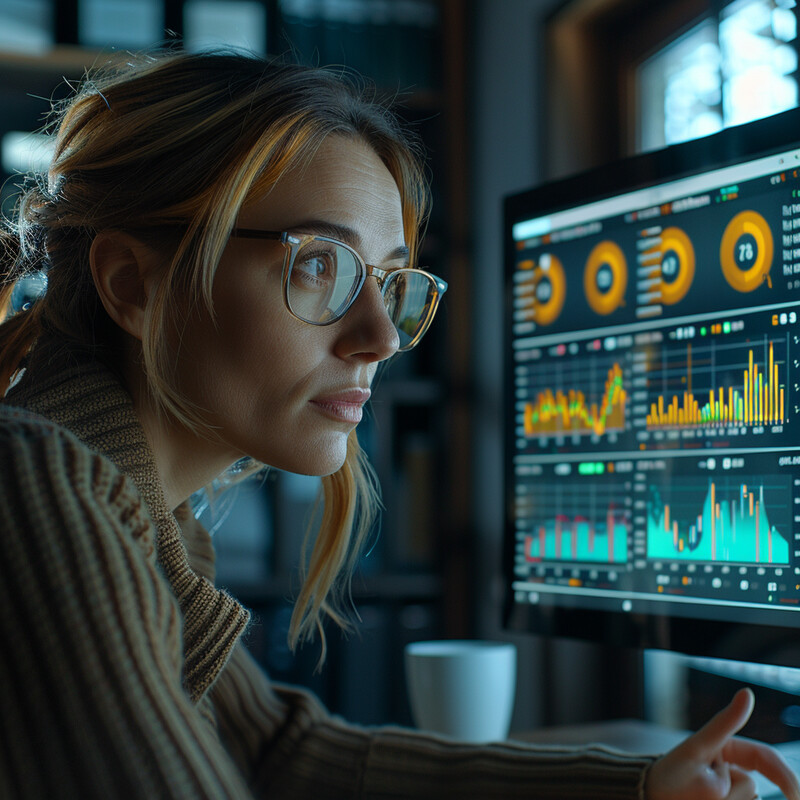
The majority of digital ad placement is now steered by AI, reflecting its effectiveness in finding the right audience. In 2023, roughly 72% of all U.S. digital display ad spending was executed via AI-driven programmatic advertising systems. These systems use machine learning to decide in milliseconds which ads to show to which user, based on likelihood of engagement. The widespread adoption of AI for ad targeting has paid off in better results – one industry analysis found companies using AI for ad optimization enjoyed a significant lift in marketing ROI (over 20% on average) compared to those using traditional methods. In practical terms, AI-powered targeting allows advertisers to reach the consumers most likely to convert, at the optimal time, thereby boosting the return on ad spend.
3. Image and Video Recognition
AI’s computer vision capabilities enable social media platforms to see and understand the content of images and videos at scale. This means algorithms can automatically tag photos, categorize videos, or even filter out prohibited imagery without human intervention. For users, this improves features like photo search (e.g. you can search your pictures for “dog” and the AI will find images with dogs) and content discovery (showing you posts with visuals similar to ones you’ve liked). Platforms also use image recognition AI to identify harmful content – such as violence, nudity, or graphic content – and remove or restrict it to keep feeds safe. Furthermore, AI-generated captions (alt text) for images help visually impaired users know what’s depicted. Overall, image/video recognition AI enriches the social media experience by organizing the flood of visual content and enforcing community standards automatically.

A striking example of AI’s scale in visual analysis comes from Pinterest’s recent initiative for more inclusive content discovery. In 2023, Pinterest deployed an AI “body type” recognition system that scanned over 3.5 billion images on its platform to identify diverse body shapes in fashion-related pins. By recognizing the characteristics of bodies in photos, the AI helps tailor search results to include different body types (e.g. showing outfits on various body shapes), thereby making the content more inclusive and relevant to each user. This massive application of image recognition technology demonstrates how AI can categorize and curate visual social media content in ways that were previously impossible manually. Beyond inclusivity, similar vision algorithms are used by major platforms to automatically flag thousands of illicit or harmful images every day for removal, illustrating AI’s crucial role in both personalization and protection in the visual realm of social media.
4. Spam and Abuse Detection
Social networks rely on AI to detect and combat spam, fake accounts, and abusive content at a scale far beyond what human moderators could handle. Machine learning models are trained on patterns of malicious behavior – for instance, an account rapidly posting the same message to hundreds of groups, or comments that contain hate speech triggers – and these models can automatically flag or remove violative content within seconds. AI systems also analyze account behaviors to identify bots and fake profiles (e.g. accounts that were just created, have no friends, and send out dozens of unsolicited messages). By catching spam and abuse proactively, AI helps maintain healthier social communities and reduces the burden on users to report problems. Importantly, these algorithms continuously learn from new examples, adapting as spammers change tactics or new forms of abuse (like deepfake videos or coordinated misinformation) emerge.
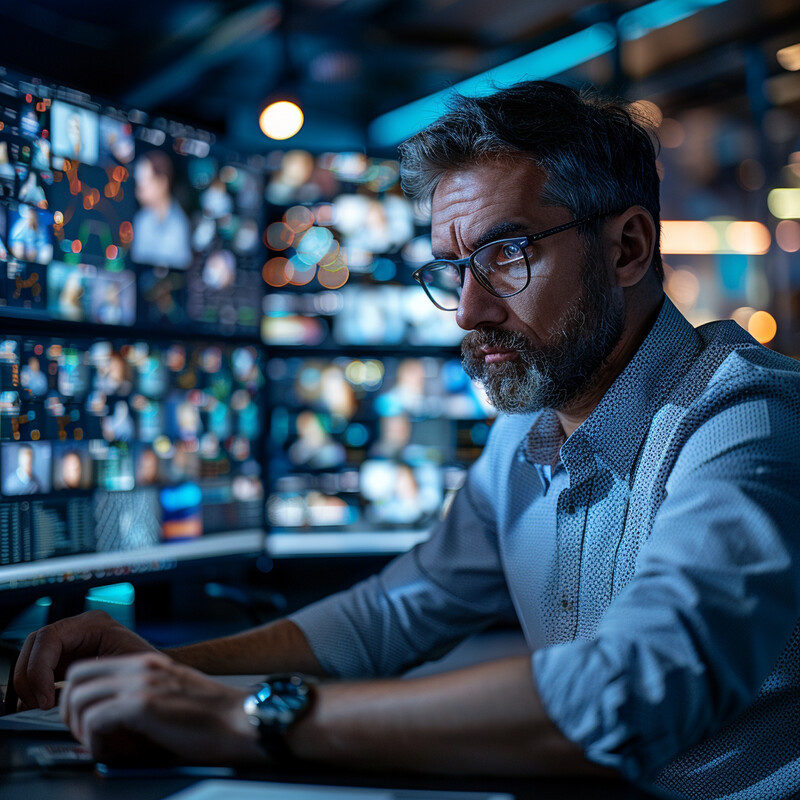
The scale of AI’s impact in content moderation is enormous. For example, Facebook’s automated moderation algorithms removed 426 million fake accounts in the first quarter of 2023 alone. The company noted this was actually the lowest quarterly takedown in five years – in prior periods, over a billion fake accounts were being removed every quarter, a task impossible without AI. These systems catch the vast majority of fake/spam accounts within minutes of their creation, often before they can do harm. Likewise, AI-driven filters on platforms like Twitter and YouTube routinely flag and delete millions of spam posts, scam links, and hate speech instances per day. Facebook reports that over 95% of hate speech removed from its site is identified by AI before any user reports it. These figures highlight how indispensible AI has become for safeguarding social media ecosystems by tirelessly policing bad actors and toxic content at scale.
5. Trend Detection and Prediction
AI algorithms excel at social listening – monitoring the firehose of social media posts to pinpoint emerging trends in real time. By analyzing hashtags, keywords, and engagement patterns, AI can detect when a topic or meme is starting to go viral long before a human might notice. This capability helps platforms and brands stay ahead of the curve. For instance, Twitter’s algorithms automatically identify trending topics by tracking unusual spikes in tweet volume. Marketers use AI-powered analytics tools to predict which conversations or challenges (e.g. a new dance trend on TikTok) are gaining momentum, so they can capitalize early. Additionally, AI trend prediction isn’t just about pop culture; it can alert companies to budding customer sentiments or crises on social media (such as sudden complaints about a product). Overall, AI gives an early-warning system for trends, enabling quicker, data-driven responses to the fast-changing social landscape.
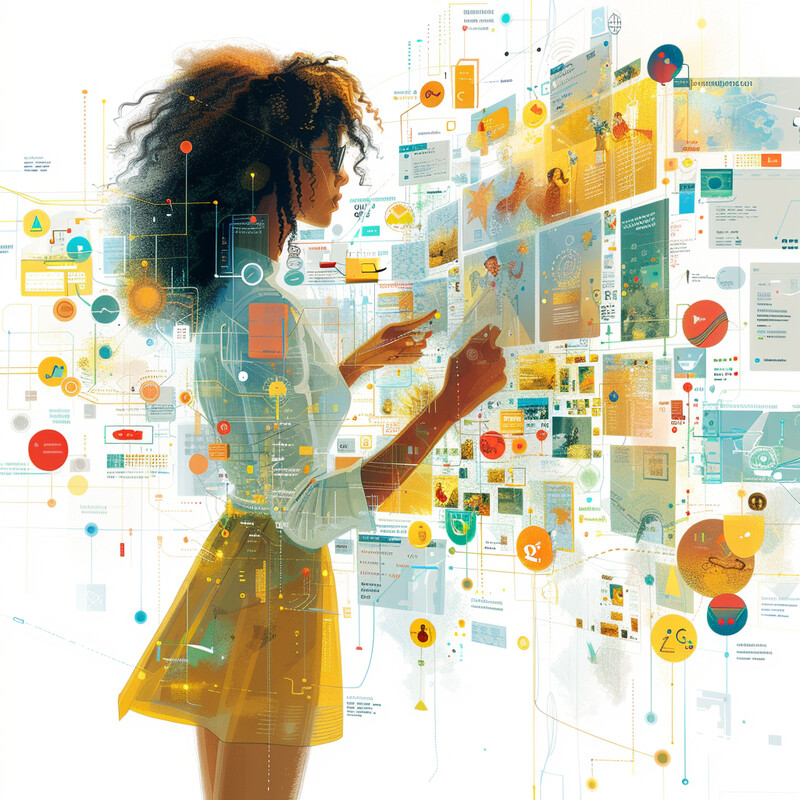
Modern AI social listening tools can scan and analyze millions of posts within minutes to uncover trending topics, a task that would take humans infinitely longer. For example, Ipsos’s Synthesio platform uses AI-driven trend detection to rapidly sift through vast social data and visualize emerging trends in real time. This means that if a new hashtag or discussion starts to surge, the AI can flag it almost immediately. Companies leveraging such tools gain a strategic edge – one marketing report noted that businesses using AI for trend forecasting can spot and react to consumer micro-trends much faster than competitors without it. In practical terms, an AI might alert a retailer that posts about a certain fashion item are spiking regionally, allowing the retailer to ramp up inventory or craft a timely campaign. By detecting trends as they germinate, AI helps social media stakeholders stay relevant and proactive.
6. Language Translation
AI-powered translation is breaking language barriers on social media, allowing users around the world to connect and share content seamlessly. Social platforms integrate advanced neural machine translation models that can automatically translate posts, comments, or messages in real time. For example, Facebook and Twitter offer “See Translation” buttons that instantly render a foreign-language post into the user’s native language. AI models trained on massive multilingual datasets have greatly improved translation quality, capturing nuances and slang better than older rule-based systems. This means a tweet written in Japanese can be understood by an English-speaking user moments later, and vice versa, fostering cross-cultural interactions. AI translation not only helps users understand each other, but also enables content to spread globally (a viral video on Instagram can carry auto-translated captions in dozens of languages). In essence, AI is turning social media into a more globally inclusive space by making communication multilingual by default.

The sophistication of social media translation AI reached a new peak with Meta’s 2022 breakthrough model. Meta AI developed a single system capable of translating 200 different languages, and it boosted translation accuracy by an average of 44% compared to previous techniques. This “No Language Left Behind” model (NLLB-200) was open-sourced and has been used to improve translations across Facebook and Instagram, including many low-resource languages that weren’t well-supported before. For users, this upgrade means content written in languages from Afrikaans to Vietnamese is far more intelligible when auto-translated by the platform. In some cases, the quality jump was even higher – for certain African and South Asian languages, translation precision improved by 70% with the new AI. This real-world deployment underscores how AI is dramatically enhancing multilingual communication on social media, making it more accurate and accessible for billions of users.
7. Chatbots for Customer Service
Many brands now use AI chatbots on social media messaging channels to provide instant customer service and support. These AI chatbots, often deployed on Facebook Messenger, WhatsApp, or Twitter (X) DMs, can handle common inquiries 24/7, such as answering FAQs, tracking orders, or helping users troubleshoot basic issues. Advances in natural language processing allow these bots to understand customer questions (even if phrased in different ways) and respond conversationally. For users, this means getting help without waiting for a human agent – response times are faster and service is available outside of business hours. For companies, chatbots dramatically scale up support capacity and free human agents to focus on more complex problems. Importantly, modern AI chatbots are continually improving; they learn from each interaction, so over time they can handle more varied questions. While not perfect, they have become an integral part of how social media facilitates brand-user communication, often seamlessly integrated such that some customers don’t even realize they’re chatting with an AI.

The efficiency gains from AI chatbots in customer service are significant. IBM has estimated that businesses can cut customer support costs by up to 30% by deploying AI chatbots to handle routine inquiries. This cost reduction comes from automation of tasks that would otherwise require paid staff – the chatbot can simultaneously assist thousands of users with things like password resets or product information, something human agents could not do in parallel. Moreover, consumer adoption of chatbots is growing: a recent survey found 67% of global consumers interacted with a customer support chatbot in the past year, reflecting how commonplace this AI help has become. Companies also report faster response and resolution times, which improves customer satisfaction. In essence, AI chatbots on social media are not only saving companies money but also scaling up service quality, handling millions of conversations and resolving issues instantly, which would be infeasible through human support alone.
8. Sentiment Analysis
AI-driven sentiment analysis allows social media platforms and brands to gauge public sentiment at scale – essentially, measuring the emotional tone of posts or comments (positive, negative, or neutral). Using natural language processing, sentiment algorithms can automatically read millions of social media mentions about a topic or brand and summarize how people feel. This is incredibly valuable for reputation management and marketing: companies can instantly see if a product launch is being praised or panned online, or detect if a crisis is brewing from negative buzz. On the platform side, sentiment analysis can feed into personalization and moderation; for instance, an AI might down-rank content that generates consistently negative reactions or identify harassing messages by their hostile tone. These systems go beyond simple keyword scanning by understanding context and sarcasm better than before. While not perfect, modern sentiment AI is accurate enough that businesses heavily rely on it to derive insights from the ocean of social media chatter, enabling data-driven decisions (e.g. tweaking a campaign that’s getting poor sentiment) in near real time.

The use of AI for sentiment analysis on social media has surged in recent years as organizations recognize its value. In 2020, about 54% of companies reported using technology to analyze customer sentiment from social media or reviews; by the end of 2023, that adoption was projected to exceed 80%. This finding, from Bain & Company, highlights a remarkable uptick in sentiment analysis implementation within a short time. What it means is that today, the vast majority of medium-to-large firms are leveraging AI to monitor how customers feel about them online. The benefit is actionable intelligence: for example, a bank can parse tweets about a new fee policy and find that 70% of them are negative in tone, prompting a swift PR response. Similarly, product teams track sentiment on feature updates to guide improvements. With four out of five companies now listening to social sentiment via AI, it’s clear that sentiment analysis has become a mainstream tool for extracting strategic insights from the social media noise.
9. Influencer Partnership Optimization
AI is enhancing how brands identify and work with social media influencers, making influencer marketing more data-driven and effective. Traditionally, choosing an influencer for a campaign could be hit-or-miss, but AI tools now analyze influencers’ audiences and performance metrics to find the best fit for a brand. These systems can assess an influencer’s follower demographics, engagement rates, content style, and even detect signs of fake followers or fraudulent engagement. By crunching these numbers, AI helps marketers predict which influencers will likely yield the highest ROI for a given product. During campaigns, AI can also optimize posting schedules and content by learning what works best for an influencer’s audience. Additionally, some brands use AI to track and measure the impact of influencer posts (e.g. sentiment of comments, conversion rates) in real time, allowing for quick adjustments. In sum, AI takes the guesswork out of influencer collaborations – ensuring brands partner with the right creators and that those partnerships deliver tangible results.
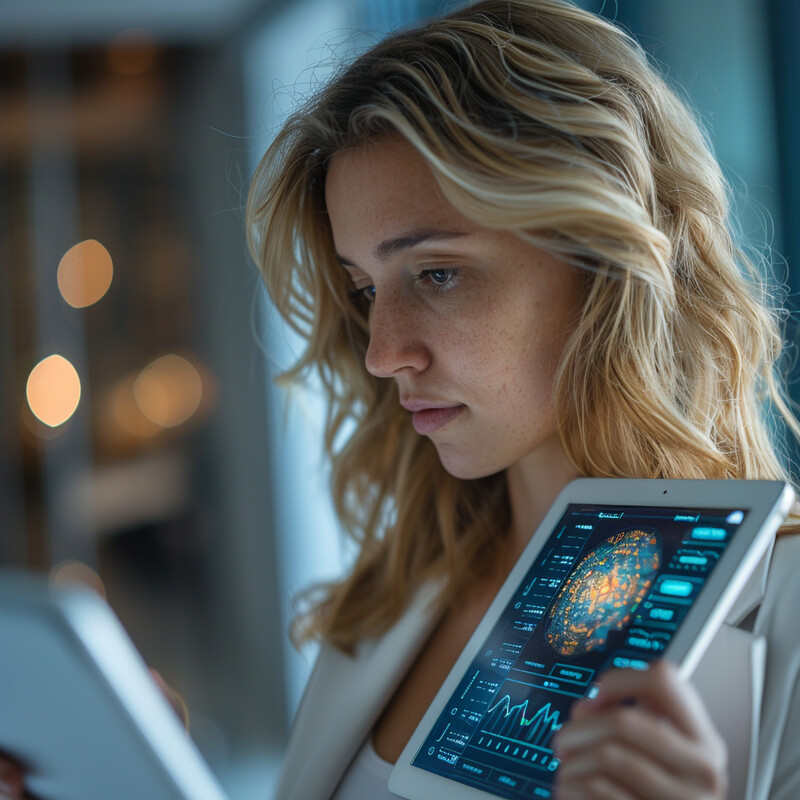
Marketers are rapidly adopting AI tools to improve influencer marketing outcomes. According to industry surveys, 63% of brands plan to use AI for influencer identification and vetting, underlining the growing trust in AI to select the most effective partners. These AI tools evaluate potential influencers on various success predictors – not just follower count, but engagement quality, audience authenticity, and content relevance – to match brands with influencers who are ideal for their target market. Early adopters have seen measurable benefits: one case study noted that an AI-chosen micro-influencer campaign drove 20% higher engagement than a manually chosen celebrity influencer campaign with a larger audience, due to better alignment with the brand’s niche. Moreover, AI helps in detecting influencer fraud (bots or bought followers), saving brands from investing in partnerships that look good on paper but wouldn’t actually influence real consumers. With nearly two-thirds of companies leaning into AI for these tasks, influencer marketing is becoming smarter and more efficient, guided by data rather than intuition.
10. Predictive Analytics
AI-based predictive analytics is giving social media companies and marketers the power to forecast future user behavior and outcomes, which in turn leads to more proactive strategies. By examining historical data (such as how past posts performed, or how user growth trended over time), predictive models can project what might happen next – for instance, predicting which content could go viral, which users are at risk of disengaging (churning), or what social commerce sales might look like next quarter. Platforms use predictive analytics to improve features: e.g. predicting the best time to show a user a particular notification or recommending a group they are likely to join. Marketers use it to allocate budgets (forecasting which campaign will yield the highest engagement) and to personalize outreach (predicting which users might need a special offer to re-engage). In essence, predictive analytics shifts social media management from reactive to proactive – rather than just analyzing what did happen, AI tries to anticipate what will happen, so decision-makers can stay ahead.
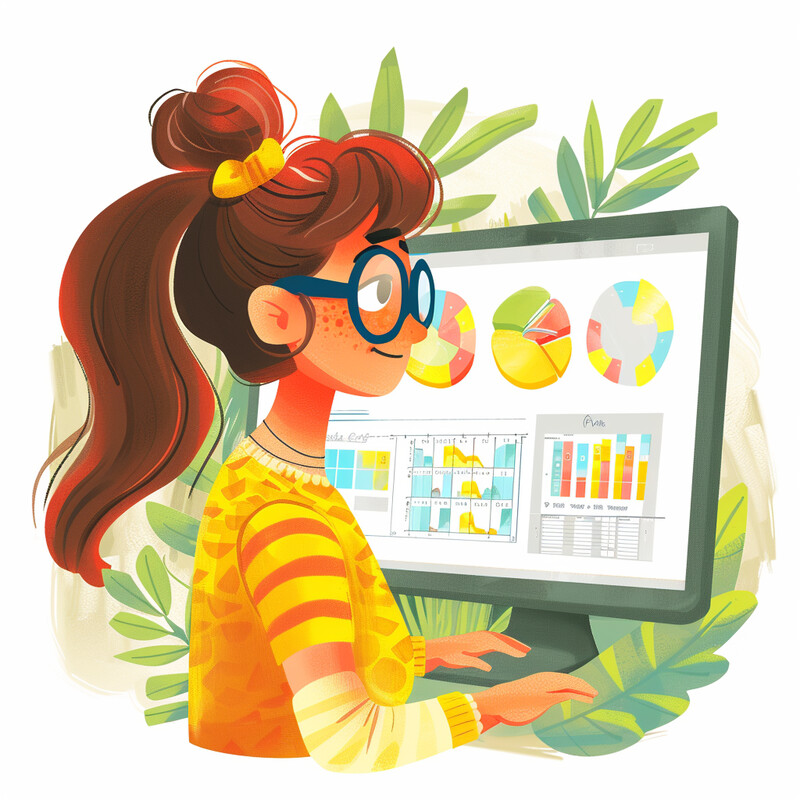
Companies that leverage AI predictive analytics for social media see clear performance advantages. One analysis found that businesses using predictive social media analytics were 2.2 times more likely to exceed their revenue goals compared to those that did not use such analytics. This strong correlation suggests that foresight gained from AI – like knowing which content mix will drive sales or which audience segment is worth targeting next – directly contributes to better financial outcomes. Moreover, a large majority of social media marketers (over 80%) now consider predictive analytics essential for initiatives like influencer marketing and content strategy, indicating a consensus that it’s key to success. In practice, predictive models might, for example, flag a trending interest among a brand’s followers, allowing the brand to create relevant content that then outperforms and leads to higher conversions. As another example, predictive algorithms at LinkedIn help identify users likely to start job hunting, informing recruiters whom to approach – generating revenue for the platform. These cases illustrate how AI-driven prediction is not just about foresight, but about turning that foresight into strategic moves that boost growth and revenue.